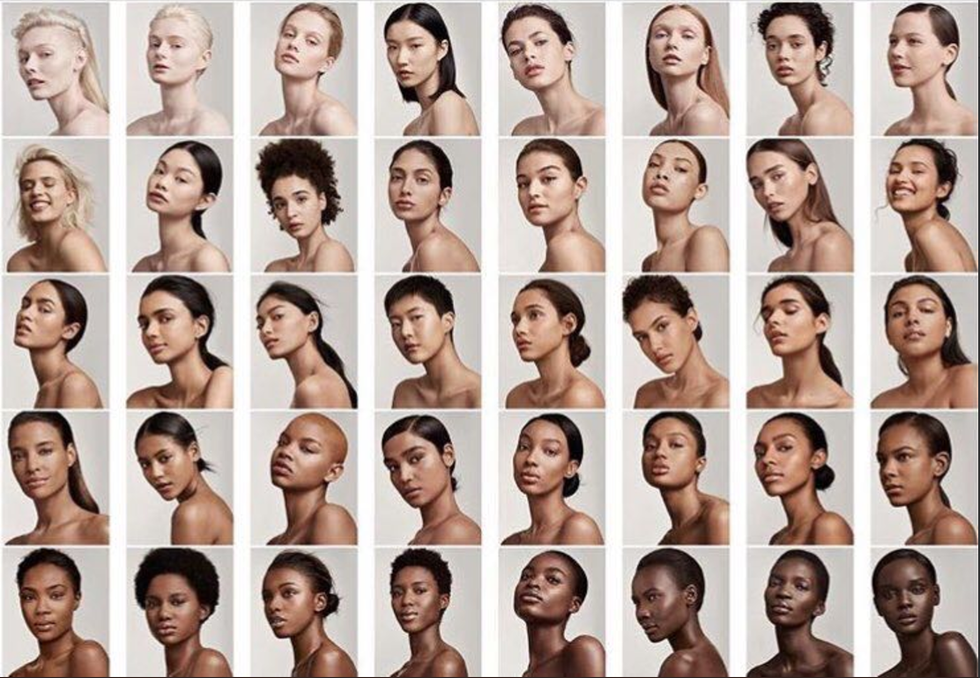Fenty Beauty is an innovation.
Released on Friday, September 8th, Rihanna’s long-anticipated makeup line has garnered widespread attention and has cultivated a conversation about the shortcomings and demands of the makeup industry. From the moment she released the advertising campaign, it was evident that the collection would be unlike most others. Fifteen models of color were chosen, featuring darker-skinned models like Duckie Thot and Muslim model Halima Aden, who appears in her hijab. The diversity in the mere branding of the collection set high expectations for what the product line might entail, and it’s safe to say that expectations were met.
With forty shades of foundation, a universal lip gloss, and a wide range of Killawatt highlighters, Rihanna’s line is easily one of the most inclusive available, and she intends for it to be. At her NYC press preview, she revealed, "I kept saying,
‘There needs to be something for a dark-skinned girl, there needs to be something for a pale girl, there needs to be something for everyone in between...There are so many different shades and undertones. You just never know so you want people to appreciate the product and not feel like ‘It only looks cute on her.’"
From Gabourey Sidibe to countless beauty gurus online, the internet is currently awash with positive reviews, with particular regard to her success in creating a diverse line. The feedback she has received, particularly with regards to the shade range of the foundations, reject a number of claims that makeup lines have long touted and engage with the concerns of buyers. African Americans have a buying power of $1 trillion, and Black women spend an estimated $7.5 billion annually on beauty products. Despite this, it was only until recently that the makeup industry has made an effort to service them, or other women of color.
When Somali supermodel Iman started her cosmetic line in 1994, she stressed that even when makeup lines were endorsed by celebrities like Freida Pinto or Janelle Monae, the counter experience faced by shoppers was unchanged. “You go to buy one of the foundation shades you think that celebrity wore, and it won’t be there.” Stylist and former beauty director for Essence magazine, Aretha Busby, noted "The companies tend to stop at Kerry Washington. I’d love to see brands go two or three shades darker."
Rihanna accomplishes this, and it’s no surprise that of the 40 foundation shades, thirteen of them are currently sold out at Sephora, nine of which are for darker-skinned women. Arguments that darker makeup shades don’t sell well, or failure to provide darker shades within the first line of a collection are inexcusable. The standard has heightened. Fenty Beauty gives the industry a push to do better and gives women of color a platform to see themselves represented upon.



















